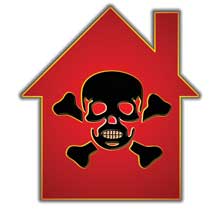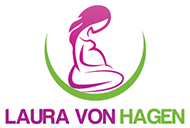It seems like everywhere we go, we are surrounded by toxic chemicals in our environment. From our cosmetics to bedding, the food in our fridge and the air we breath, it is impossible to live a 100% toxic free life. However, there are steps you can take in your life to reduce your toxic burden and find healthier replacements for everyday living. Environmental exposure to toxins and chemicals is something I discuss with all my patients, especially those with infertility issues. As the evidence continues to emerge on how these chemicals affect our health and body, the goal is to remove the toxins from a person’s body and prevent future exposure. Below if a list of common chemicals, what they do to our body, and how we can avoid them.
PCBs
Where they are found: Although polychlorinated biphenyls (PCBs) have been banned since 1976, they have accumulated in our water systems and are often found in high doses in farmed fish.
What they do in our body: They have been linked to impaired fetal brain development in mothers who consume them during pregnancy and in addition they may pose a risk for several types of cancer.
How to avoid them: Avoid purchasing Atlantic salmon that has been farmed as it has been fed a diet of corn and fish by-products. Instead spend the extra money to purchase wild Pacific salmon. Try to consume smaller fish that are lower on the food chain and have less toxic accumulation. Good choices include wild rainbow trout, sardines and Atlantic mackerel.
For more information on this topic visit Environmental Working Group’s (EGW) page on choosing safer seafood.
https://www.ewg.org/research/ewgs-good-seafood-guide
Arsenic
Where they are found: Conventionally raised factory farm chickens have arsenic added to their feed as a growth promoter.
What they do in our body: Disrupts signalling pathways involved in carbohydrate metabolism. This has been linked to diabetes, weight gain and high blood pressure.
How to avoid them: Buy organic chicken that is raised without the use of antibiotic or growth hormones. To save money, buy whole chicken rather than the boneless chicken breasts. Blue Goose brand and Costco are reasonably priced
Phthalates
Where they are found: In artificial scents added to body products, lotions, perfumes and air fresheners.
What they do in our body: A hormone disruptor, which has been linked to several conditions including thyroid irregularities, lower sperm count and obesity.
How to avoid: Look for natural body washes and lotions that contain no phthalates and are labelled 100% scent free. Avoid using perfume or walking through the perfume section of department stores. Replace your regular brand name air freshener with a natural brand that uses essential oils to cover up smells. Holler and Howl, a local Canadian business, has great options on Etsy
https://www.etsy.com/shop/HollerandHowl
Other simple healthy living tips include: Buying organic or local greenhouse produce when possible, avoid purchasing clothes that require dry cleaning, having your home inspected for water damage and mould.
Keep it mind is it impossible to live 100% ‘natural’. It is about finding the balance between reducing exposure and not driving yourself crazy checking the label of every single item when shopping. An appointment with a Naturopathic Doctor can help assess your risk for toxin exposure, and prescribe a treatment plan to help support detoxification and optimal fertility.
References
https://www.ewg.org/research/dirty-dozen-list-endocrine-disruptors


